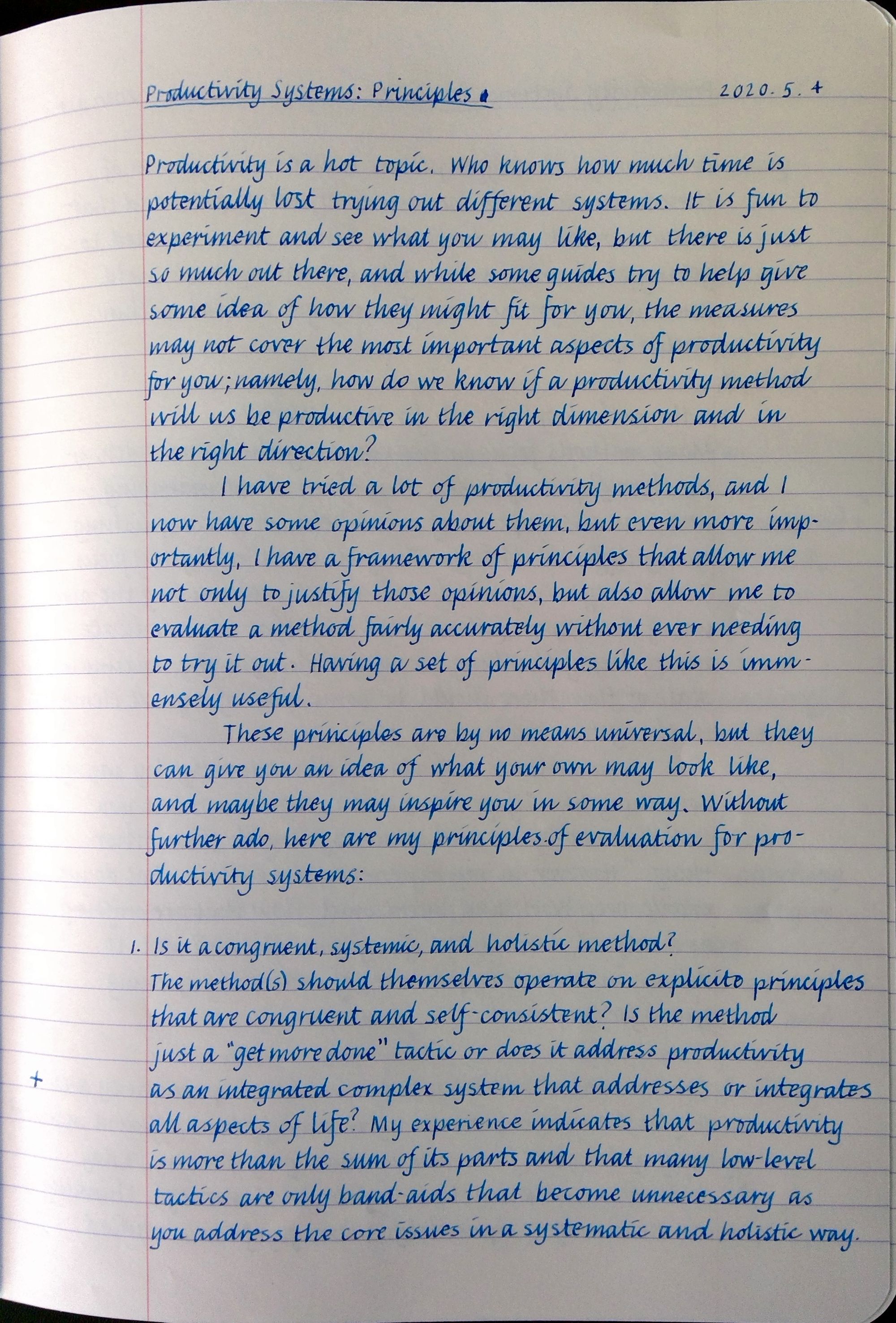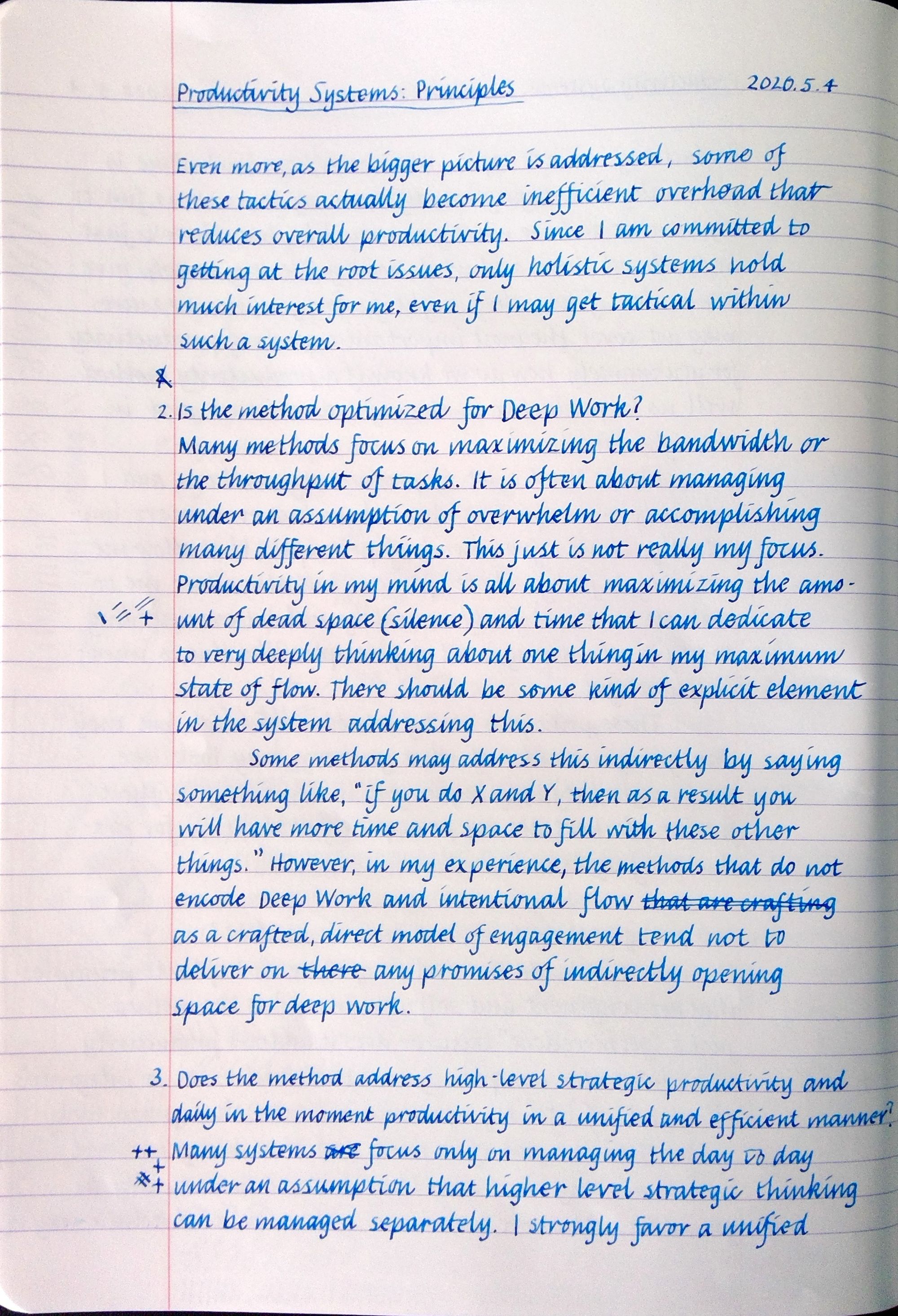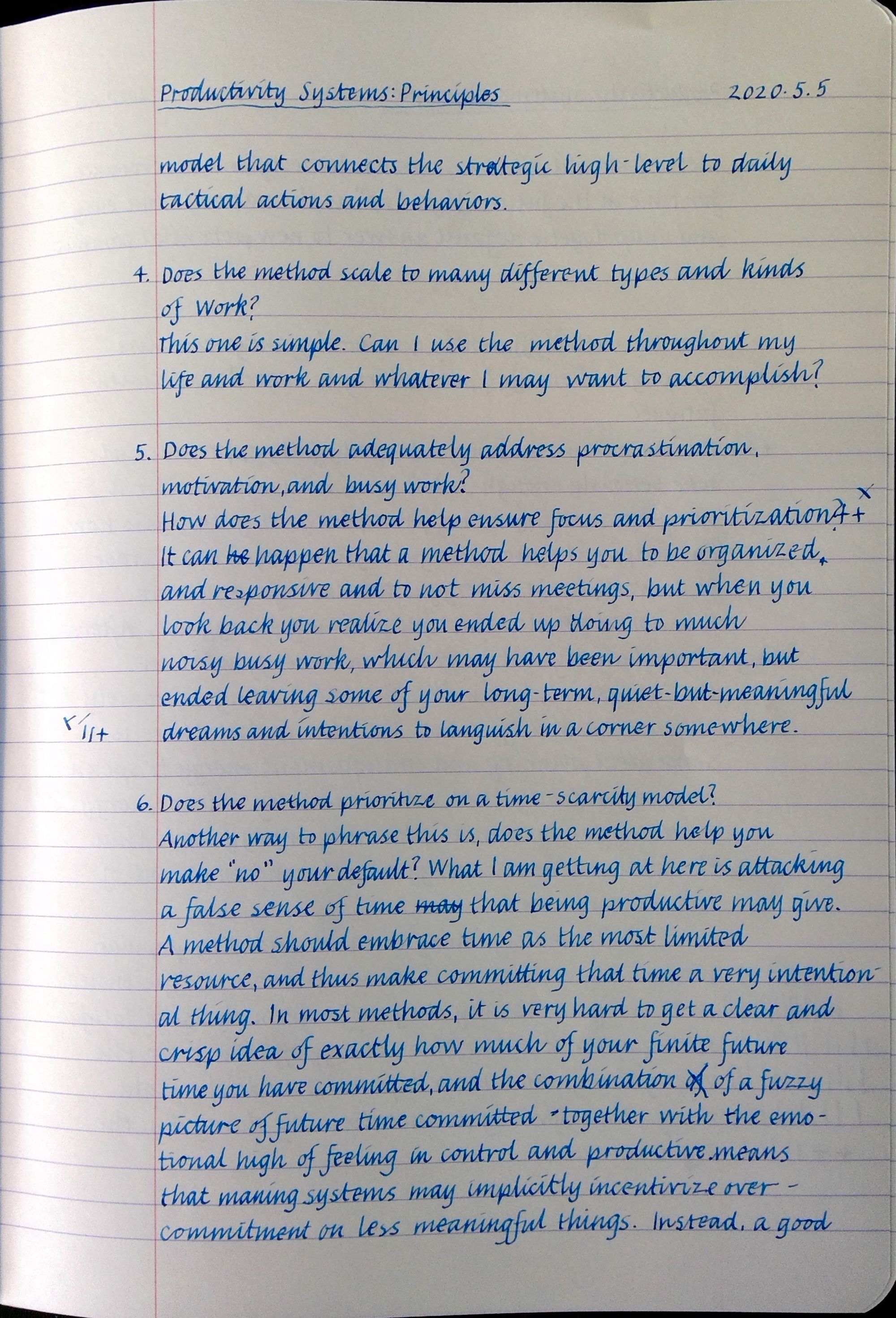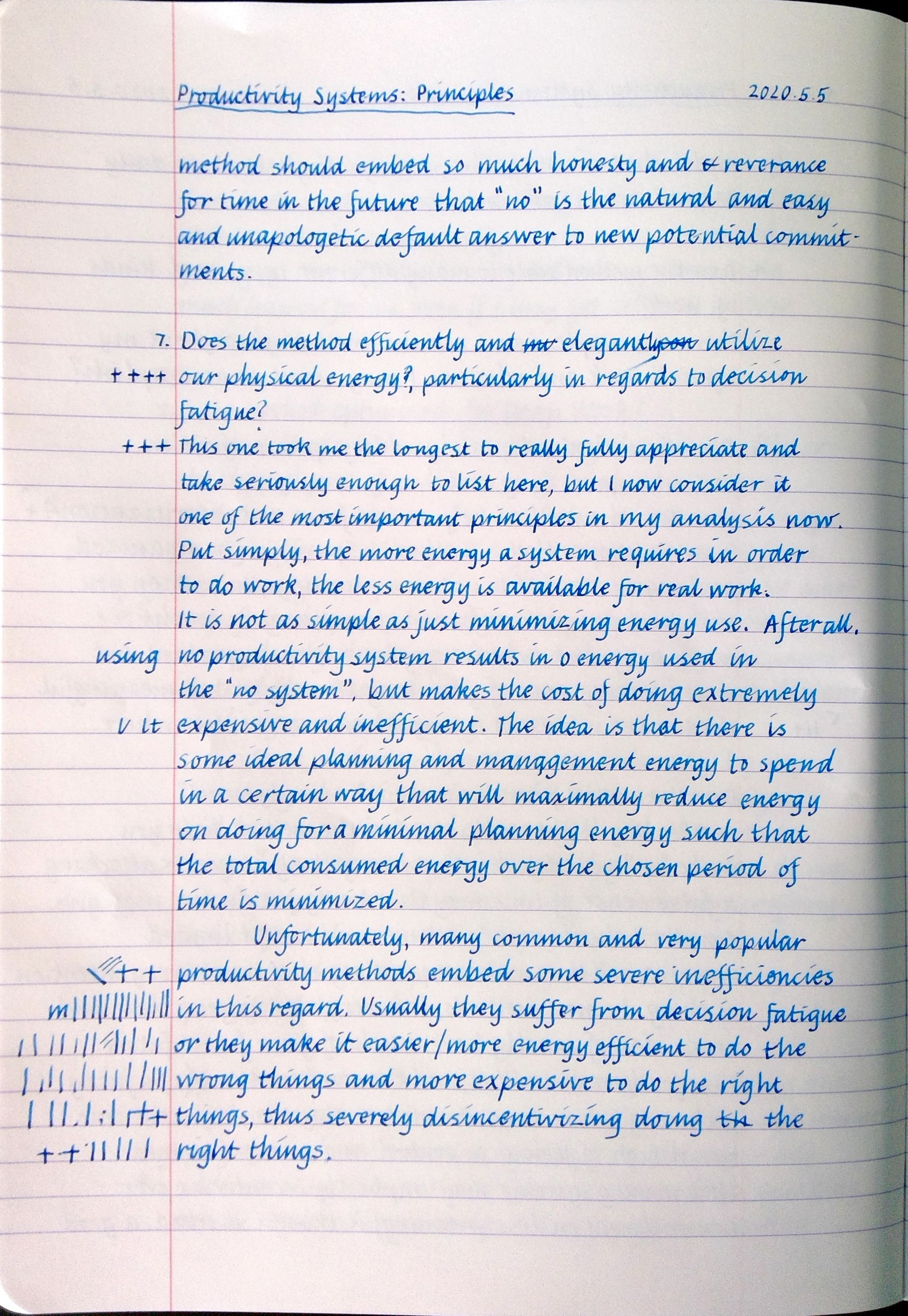Productivity Systems: 7 Principles of Evaluation





Productivity is a hot topic. Who knows how much time is potentially lost trying out different systems. It is fun to experiment and see what you may like, but there is just so much out there, and while some guides try to help give some idea of how they might fit for you, the measures may not cover the most important aspects of productivity for you; namely, how do we know if a productivity method will help us be productive in the right dimension and in the right direction?
I have tried many productivity methods, and I now have some opinions about them, but even more importantly, I have a framework of principles that allow me not only to justify those opinions, but also allows me to evaluate a method fairly accurately without ever needing to try it out. Having a set of principles like this is immensely useful.
These principles are by no means universal, but they can give you an idea of what your own may look like, and maybe they may inspire you in some way. Without further ado, here are my principles of evaluation for productivity systems:
Principle #1: Is the method congruent, systemic, and holistic?
The method should operate on explicit principles that are congruent and self-consistent. Is the method just a "get more done" tactic or does it address productivity as an integrated complex system that addresses or integrates all aspects of life? My experience indicates that productivity is more than the sum of its parts and that many low-level tactics are only band-aids that become unnecessary as you address the core issues in a systematic and holistic way.
Even more, as the bigger picture is addressed, some of these tactics actually become inefficient overhead that reduces overall productivity. Since I am committed to getting at the root issues, only holistic systems hold much interest for me, even if I may get tactical within such a system.
Principle #2: Is the method optimized for Deep Work?
Many methods focus on maximizing the bandwidth or the throughput of tasks. It is often about managing under an assumption of overwhelm or accomplishing many different things. This just is not really my focus. Productivity in my mind is all about maximizing the amount of dead space (silence) and time that I can dedicate to very deeply thinking about one thing in my maximum state of flow. There should be some kind of explicit element in the system addressing this.
Some methods may address this indirectly by saying something like, "if you do X and Y, then as a result you will have more time and space to fill with these other things." However, in my experience, the methods that do not encode Deep Work and intentional flow as a crafted, direct model of engagement tend not to deliver on any promises of indirectly opening space for deep work, though they might reduce stress associated with too much of a busy mind.
Principle #3: Does the method address high-level strategic productivity and daily, in-the-moment productivity in a unified and efficient manner?
Many systems focus only on managing the day today under an assumption that higher level strategic thinking can be managed separately. I strongly favor a unified model that connects the strategic high-level to daily tactical actions and behaviors.
Principle #4: Does the method scale to many different types and kinds of work?
This one is simple. Can I use the method throughout my life at work and whatever I may want to accomplish?
Principle #5: Does the method adequately address procrastination, motivation, and busywork?
How does the method help ensure focus in prioritization? It can happen that a method helps you to be organized and responsive and to not miss meetings, but when you look back you realize you ended up doing too much noisy busy work, which may have been important, but ended leaving some of your long term, quiet but meaningful dreams and intentions to languish in a corner somewhere.
Principle #6: Does the method prioritize on a time scarcity model?
Another way to phrase this is, does the method help you make "no" your default? What I am getting at here is attacking a false sense of time that being productive may give. A method should embrace time as the most limited resource, and thus make committing that time a very intentional thing. In most methods, it is very hard to get a clear and crisp idea of exactly how much of your finite future time you have committed, and the combination of a fuzzy picture of future time committed together with the emotional high of feeling in control and productive means that many systems may implicitly incentivize over-commitment on less meaningful things. Instead, a good method should embed so much honesty and reverence for time in the future that “no” is the natural and easy and unapologetic default answer to new potential commitments.
Principle #7: Does the method efficiently and elegantly utilize our physical energy, particularly in regards to decision fatigue?
This one took me the longest to really fully appreciate and take seriously enough to list here, but I now consider it one of the most important principles in my analysis now. Put simply, the more energy a system requires in order to do work, the less energy is available for real work. It is not as simple as just minimizing energy use. After all, no productivity system results in 0 energy used in the "no system," but makes the cost of doing extremely expensive and inefficient. The idea is that there is some ideal planning and management energy to spend in a certain way that will maximally reduce energy on doing for a minimal planning energy such that the total consumed energy over the chosen period of time is minimized.
Unfortunately, many common and very popular productivity methods embed some severe inefficiencies in this regard. Usually they suffer from decision fatigue or they make it easier/more energy efficient to do the wrong things and more expensive to do the right things, thus severely disincentivizing doing the right things.

